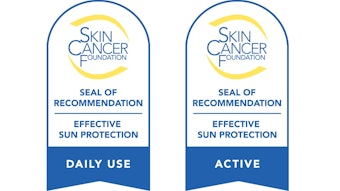
The esthetics industry was forced to change how we do business with the advent of COVID over the past few years. Many people who did not believe that such a tactile industry would to be successful with online training suddenly were forced to think about how to change our policies and to think about moving them. Class trainings were moved online or educators offered a blended type of training (both online and in-class). As a result of the pandemic, many estheticians utilized their extra time to seek out further education. On the other side, a reduction of income led many to seek educational resources online that were free.
Numerous situations exist in which online training can be useful, cost-effective and even preferred. The effective use of online learning has been highly questioned over the last decade of technological advancements. One study found that, “On average, students in online learning conditions performed modestly better than those receiving face-to face instruction.”1
Credibility
Credibility has always been a challenge with online training, but more universities are offering diploma and degree programs online. I have had students ask if the words online would be listed on their certificates, as online training would not be considered by their employer or governing body.
According to a report by Northeastern University’s Center for the Future of Higher Education and Talent Strategy, employers no longer view online credentials as inferior to other degrees. In fact, the report found that online credentials are now widespread, with more than 61% of human resource leaders viewing online credentials as equal to those completed in-person. It also found human resource leaders are increasingly prioritizing skills-based or competency-based hiring over degrees. Finally, it found that just under half of human resource leaders report they are looking for higher levels of education for the same job roles due in part to new skill demands. More than 64% of leaders also believe in the need for continuous lifelong learning, while 52% believe the majority of these degrees will be completed online.2
Continue reading about online education in our Digital Magazine...
Morag Currin is an esthetic instructor with more than 27 years of spa industry experience and more than 12 years of training and training management experience. She is the founder of Oncology Training International and the author of Oncology Esthetics: A Practitioner’s Guide Revised & Expanded and Health-challenged Skin: The Estheticians’ Desk Reference.










